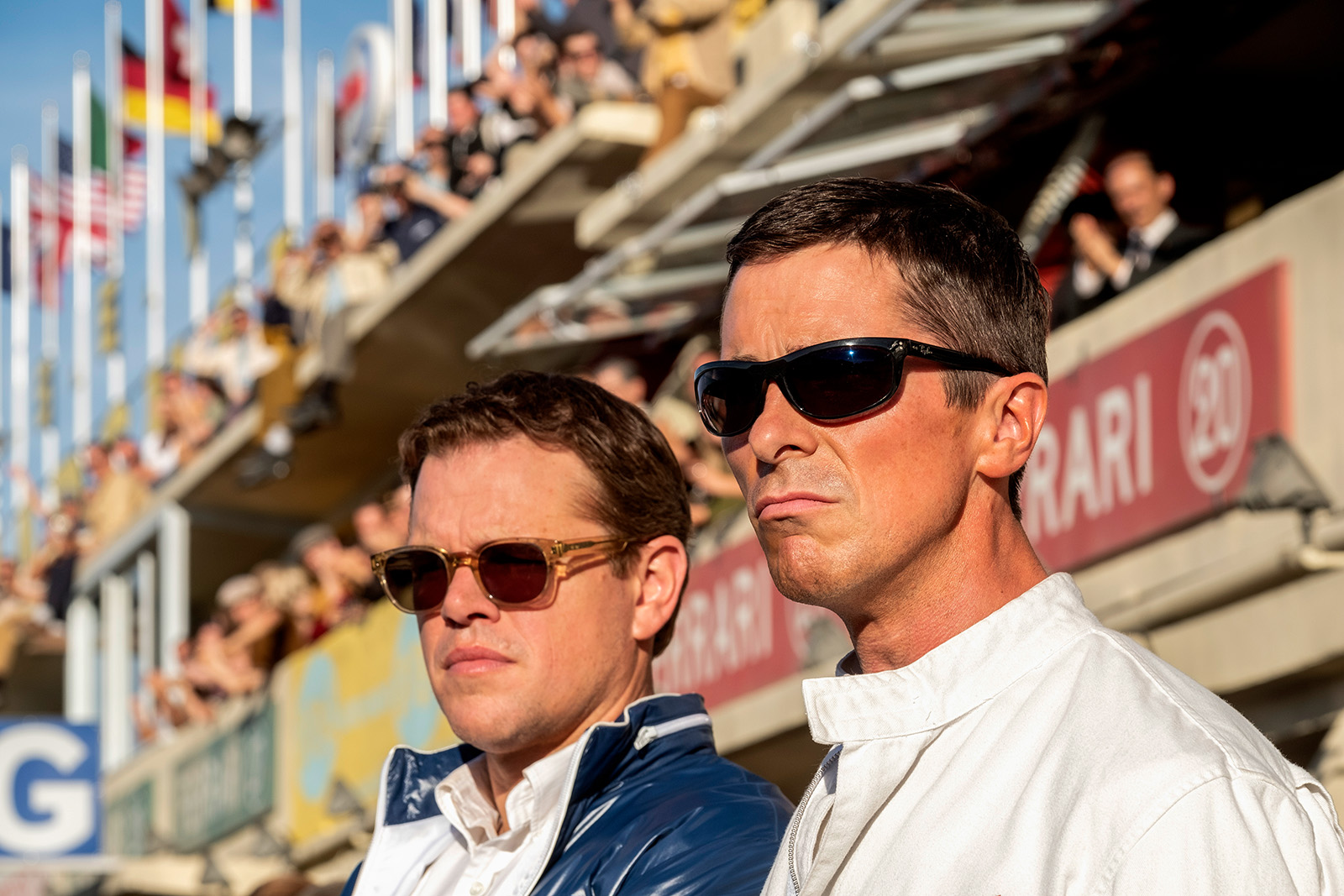Movie review: ‘Ford v Ferrari’ manages to steer through the action with well-rounded drama

(Courtesy of Merrick Morton TM/ 20th Century Fox)
"Ford v Ferrari"
Directed by James Mangold
20th Century Fox
Nov. 15
By Jordan Wilson
Nov. 14, 2019 9:41 p.m.
Actions movies rarely contain more than the requisite amount of drama needed to advance the story – “Ford v Ferrari” is the commendable exception.
Blending drama and action is old hat for director James Mangold (“Logan”), but this time he’s donning it to tell the story of high-stakes racing between two of the world’s most famous automobile manufacturers. However, at the heart of the film is the struggle among car designer Carroll Shelby (Matt Damon), driver Ken Miles (Christian Bale) and the corporate bureaucracy of the Ford Motor Company in the 1960s.
It’s “Days of Thunder” meets “Mad Men.” The blood-pumping scenes of wheel-to-wheel competition are equally matched with scenes of shrewd corporate posturing and deception.
Beginning with Ford’s marketing director Lee Iacocca (Jon Bernthal) offering to buy the financially struggling Ferrari brand, the movie kicks into high gear when Ford is spurned in favor of fellow Italian carmaker Fiat. CEO Henry Ford II (Tracy Letts), furious at this industrial trickery, instructs Iacocca to beat Ferrari at its own game: the 24 Hours of Le Mans endurance race. But once Iacocca hires Shelby and Miles to design, build and race the car, setback after setback leaves the Ford team struggling.
[Related: Movie review: ‘Last Christmas’ is worth giving your heart away to this holiday season]
Amid Ford’s struggles, however, is the turbulent lives of Shelby and Miles, providing the film’s main intrigue. This dynamic choice is far more interesting than a simple tete-a-tete between the two car companies could ever be. The most striking moments in the film aren’t when the bright blue-and-white Ford car is neck and neck with the shiny red Ferrari on the race track, but when Shelby is caught between his obligations to the Ford bureaucracy and his desire to see Miles in the winner’s circle at Le Mans.
With so much of the film focused on character building, it could have been easy to invest more of the film’s 152-minute screen time in scenes depicting the races themselves. Thankfully, Mangold maintained his dedication to telling a story of human drama and not mechanical superiority.
Echoing his past direction in the remake of “3:10 to Yuma,” the subplot dives into another personal relationship – one between Miles and his son Peter. The boy seems to recognize the danger of his father’s chosen profession, but also demonstrates pride and awe in his accomplishments, providing another way to empathize with Miles, who would otherwise be an incendiary character.
[Related: Graduate student to direct ‘Romeo and Juliet’-based short film in sculpture garden]
However, Bale plays both sides of the character – the headstrong racer and the careful father – with as much skill as Miles demonstrates behind the wheel of a race car. It’s clear from the start that Miles is an excellent wheelman with great engineering acumen, but he’s quick to anger and uncompromising when it comes to chasing perfection out on the track. One would imagine his endless chase for perfection would makes him insufferable. And, yet, Bale’s emotional and gripping performance as a father and friend demands empathy.
While Bale’s arc is a core part of the story, the film doesn’t skimp on the action either. Real cars and driving sequences were used in favor of CGI – except when necessary – and it’s a refreshing change when half of the credits for a modern action movie are from visual effects studios.
The authenticity of the racing scenes is only marred by the closer shots during those sequences. The camera is often in the face of the actors, never really providing viewers with a true sense of scale, though it does maintain the heightened drama. Nevertheless, gearheads and racing fans will delight in the depiction of some of the most historic races to ever take place, while the average moviegoer will still leave the theater impressed by the spectacle.
Despite the dramatic story, the film doesn’t take itself too seriously. “Ford v Ferrari” isn’t a story meant to examine the nature of humanity in such a way that demands Oscar attention, but it accomplishes the fundamental goals of a historical action movie – to enlighten and entertain.

